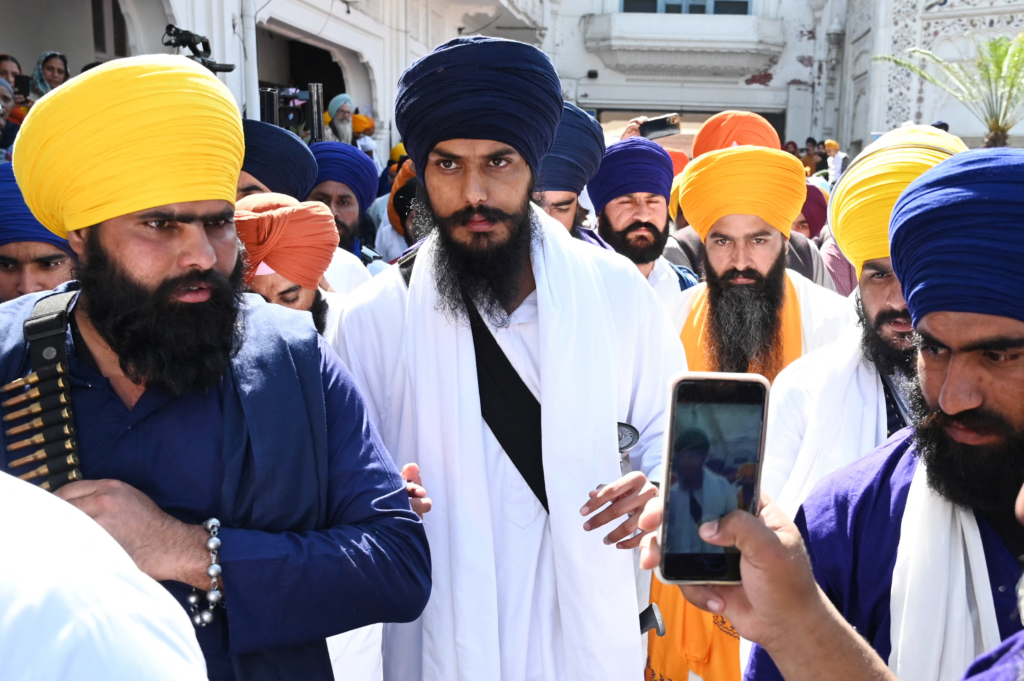Unpacking India’s Concerns over Sikh Separatism
Unpacking India’s Concerns over Sikh -Introduction
On June 23, 1985, the world was shaken by the bombing of Air India flight 182, which claimed the lives of all 329 people on board. The perpetrators, Indian-born Sikh Canadians, were accused of being radical separatists seeking revenge for the storming of the Golden Temple in Punjab by the Indian army the previous year. This tragic event remains the worst terrorist attack in Canada’s history. Decades later, Sikh separatism has once again emerged on the global stage, fueled by recent events, including the killing of Hardeep Singh Nijjar in Canada . This article explores the historical context, current developments, and the reasons behind India’s heightened concerns over Sikh separatist calls for Khalistan.

Historical Roots of Sikh Separatism
The roots of Sikh separatism can be traced back to India’s partition in 1947 when the departing British split the country into India and Pakistan. Punjab, once home to a powerful Sikh empire, was divided, leading to tensions among Sikhs who felt mistreated in the new Hindu-majority India. The struggle for greater political and cultural autonomy began, marked by calls for the creation of Khalistan, a separate Sikh homeland.
While there hasn’t been an active insurgency in Punjab for nearly three decades, recent incidents, including sporadic violence and targeted killings, have reignited concerns about renewed calls for separatism. A 2021 Pew Research Center survey revealed that 95% of Sikhs were “very proud” to be Indian, but security officials in the region have warned of underlying discontent.
Recent Incidents and Revived Separatist Sentiments
In recent years, the arrest of Amritpal Singh, a Sikh separatist advocating for an independent homeland, and the massive police hunt that preceded it underscore the lingering tensions. Singh’s calls for social issues and the protection of Sikh religious rights against India’s ruling Bharatiya Janata Party (BJP) resonated with some in the state, leading to clashes with authorities.
Furthermore, the assassination of Hardeep Singh Nijjar in Canada has become a focal point in the renewed tensions between India and Canada. Nijjar, designated a terrorist by New Delhi, was accused of leading a banned militant group advocating for Khalistan. Trudeau’s assertion that Nijjar’s killing may have involved the Indian state has escalated diplomatic tensions, with both countries taking firm stances and refusing to back down.
Khalistan: A Sensitive National Security Issue
Indian Prime Minister Narendra Modi and the ruling BJP have consistently argued that Canada’s perceived inaction toward extremism within the Sikh diaspora poses a national security threat. The accusation that Canada is a “safe haven for terrorists” has strained bilateral relations, leading to India suspending visas for Canadian citizens.
The painful memories of the Khalistan insurgency in the 1970s and 80s, marked by civilian massacres and human rights abuses, continue to shape India’s national security agenda. The storming of the Golden Temple in 1984, followed by the assassination of Prime Minister Indira Gandhi, triggered widespread communal violence, leaving scars that persist to this day.
The Diaspora’s Perspective
While advocacy for Khalistan has diminished within India, the Sikh diaspora in countries like the United States, the United Kingdom, Australia, and Canada continues to seek reconciliation for the historical human rights abuses against the Sikh community. Overseas Sikh organizations argue that the Khalistan movement is being unfairly equated with terrorism by the Indian government, emphasizing their commitment to peaceful advocacy for a separate homeland.
A growing disconnect between the Sikh diaspora and Modi’s government is evident in the aftermath of Hardeep Singh Nijjar’s death. Many Canadian Sikhs called for a thorough investigation, claiming he was killed for political reasons. Trudeau’s statements have found support among some members of the diaspora, further highlighting the complex relationship between the Sikh community and the Indian government.
Conclusion
The resurgence of Sikh separatism and calls for Khalistan has thrust a decades-old issue back into the international spotlight. The historical grievances, fueled by incidents like the Air India bombing and recent events such as Hardeep Singh Nijjar’s killing, have created a complex and sensitive situation. As India and Canada navigate diplomatic tensions, the broader question remains: why has this dormant issue become a live concern again? The answer lies in the unresolved historical tensions, the persistent human rights concerns, and the evolving dynamics within the Sikh diaspora, all of which contribute to the current state of heightened sensitivity and international scrutiny.
